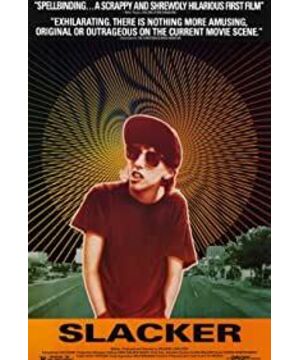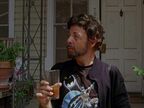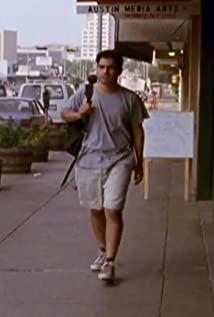After watching American independent film director Richard Linklater's feature film debut "Urban Ronin", I felt a little restless. The beautiful long lens kept flashing back in his mind. It was a bizarre incident that exuded a pale halo: the young man drove his mother to death and returned to his residence peacefully, waiting for the arrival of the police. The desolation of a person's heart easily attracts me to walk in, even though this is just a small chapter in this casual and undisciplined movie.
I like Richard Linklater’s movies, partly because there is something similar to class belonging to the blame, and partly because of vanity. The former is manifested as: the idle youth under his lens is always so kind to me. I regard that as many images separated from myself, my rebellious and lazy dichotomy; the latter The performance is: I enjoy the endless chatter of those characters, even though I don't care whether they are talking about existentialism or the presidential election, this is probably a kind of vanity attached to the title of "artistic youth".
Since entering the mainstream film industry, love movies have become Linklater's golden signature. It is undeniable that most people know him from "Before Sunrise" or "Before Sunset". He has also recently begun to extensively dabble in politics, crime and many other genres, but he has the most authentic taste, and I think it can only be a "blind stream" movie. In my impression, this is the most authentic category of American independent films, and the imagery of loss and sparseness in his other works has never surpassed this "Urban Ronin".
Imagine it. It was in 1991, and several bands in the Seattle underground music scene began to gain attention across the country, but no one could imagine what a turbulent wave would be formed in a few years, and there was an unusual silence on the eve of the revolution. In the small southern city of Austin, a young man with more enthusiasm than ambition, Linklater, after screening his first feature film, immediately went to participate in a small Seattle band named "Mudhoney". Club performances (this is not a fabricated matter, I read it from a small book). Soon thereafter, the music of the latter became the vanguard of a new round of American independent cultural movement, while the debut of the former became a spiritual portrayal of alternative youths, and "slacker" has almost become a term of this era. When they talked about this movie, they should be self-deprecating. One of the vivid sayings is: It is a potato that sprouted completely unintentionally.
But in fact, there is such a group in any era—the Beat generation, the stubborn masters of the Cultural Revolution, today’s party animals, the wanderers in Wenders’ highway movies, the stray youths under the lens of Jia Zhangke...Ignore the outside world. In terms of the difference, from the inner level, they are the same unconscious subjects lacking motivation. However, this group of "ronin" is quite different: they are not social animals like hippies, and naturally they will not be influenced by the trend of the times like the stubborn lord, their lifestyle is relatively grass-rooted, and they do not have the bourgeois taste of party animals. They face this same indifferent world purely with an outsider's indifferent attitude, so their laziness has a strong bohemian temperament, which can be understood as a kind of detachment that is too lazy to compete with life. At the same time, there is no denying their rogue and helplessness as small characters. In Linklater's other work "A Half-Dream and Half-Awake Life", the people in the play once laughed at themselves like this: We only have theory, not action.
In the movie, we always see the small and leisurely side of this city. The angle of the sun, the extremely full golden yellow, made people have an urge to fall asleep deeply. In such an environment, it is really natural to let time pass slowly.
Linklater has always stuffed a lot of philosophical utterances in his films, which shows his strong desire to talk as a literary youth. But these utterances subjectively involve nothing more than the emptiness of life and social estrangement, they do not have more meaning, let alone the thinking direction that the movie should guide the audience. But objectively, these utterances have played a wonderful role. The first is to create a sense of blankness: the characters who speak the lines seem to never get feedback. Some people who listened to him were reluctant to speak, and some talked about another matter. The more lines you have, the more you can feel the incommunicability between people. Secondly, these utterances form a stream of consciousness in the language of reading, rather than the language of the movie. It is also an amazing ability to support a movie with just lines?
"Urban Ronin" is outstanding in that it is joking but not critical, and complaining but not maliciously cursing. Almost completely filtered out the elements of anger and self-pity from the paranoid life attitude of the people on the fringe of the city. For those who do not like to indulge in negative emotions, they can also appreciate this like an interesting picture of the market. Movie.
Looking back at that part of the angry youth movies or rock movies in China, we should be ashamed. It's not that I'm so angry that I can only scold my mother, or I'm so decadent that I come, and I'm slapped, it seems to be a sigh of gambling, and it's still petty. It is said that such a movie does not do anything about power or power, but once that nasty gesture is made, you know that it's out of play. One is a blind stream, and the other is a rogue. It's really not on the same level.
View more about Slacker reviews










